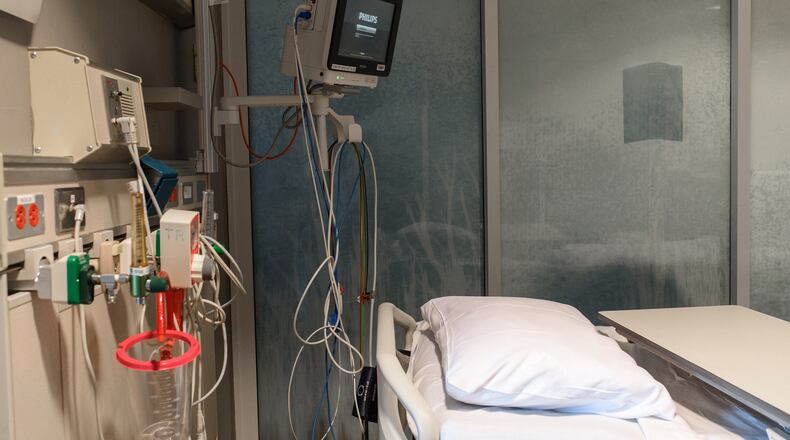Legislators who have battled for years over surprise medical billing say they may be on the path to a compromise.
Surprise bills are medical bills that come to insured patients for costs they thought were covered. The bills can run hundreds or thousands of dollars.
State Sen. Chuck Hufstetler, R-Rome, one of the key legislators on the surprise billing issue, introduced legislation Tuesday that would curb patients' risk of facing unexpected charges. He emphasizes that the measure, Senate Bill 293, is just a draft and negotiations are still in process. But in the proposal, Hufstetler, an anesthetist, takes a step toward the position of insurance companies — doctors' opponents on surprise billing.
As one example of surprise billing, an insured patient can undergo surgery at a hospital in his or her insurance network, not realizing that some of the hospital’s doctors are independent contractors and aren’t part of the hospital’s insurance contracts. So the patient can come home from the hospital and receive a separate bill from an out-of-network anesthesiologist or radiologist.
Everyone agrees it’s a bad situation and patients shouldn’t be caught in the middle. But insurance companies and doctors, and their advocates in the Legislature, can’t agree on the price list the state should establish in such cases.
So no law passes and patients keep receiving the bills.
SB 293 would base the price list on what insurance companies have already negotiated in their other contracts. Doctors have traditionally opposed that. The state Department of Insurance would create the price database, and there would be additional options for independent arbitration.
Hufstetler and state Rep. Richard Smith, R-Columbus, have been key opponents on the surprise billing issue, but recently they've been meeting and trying to hash it out. Smith is the new chairman of the House Rules Committee, but he was chairman of the House Insurance Committee. He was seen as an advocate for insurance companies' position on surprise billing.
Smith said he and Hufstetler had come to agreement on a lot of the sticking points.
The question is whether insurance companies and doctors’ groups who have influence in the Legislature will agree.
Dr. John Sy, the president of the Georgia College of Emergency Physicians, a group that advocates for doctors, knows about the negotiations but was noncommittal in an interview Tuesday night. He said the organization did not support or oppose any proposal yet.
About the Author
Keep Reading
The Latest
Featured



